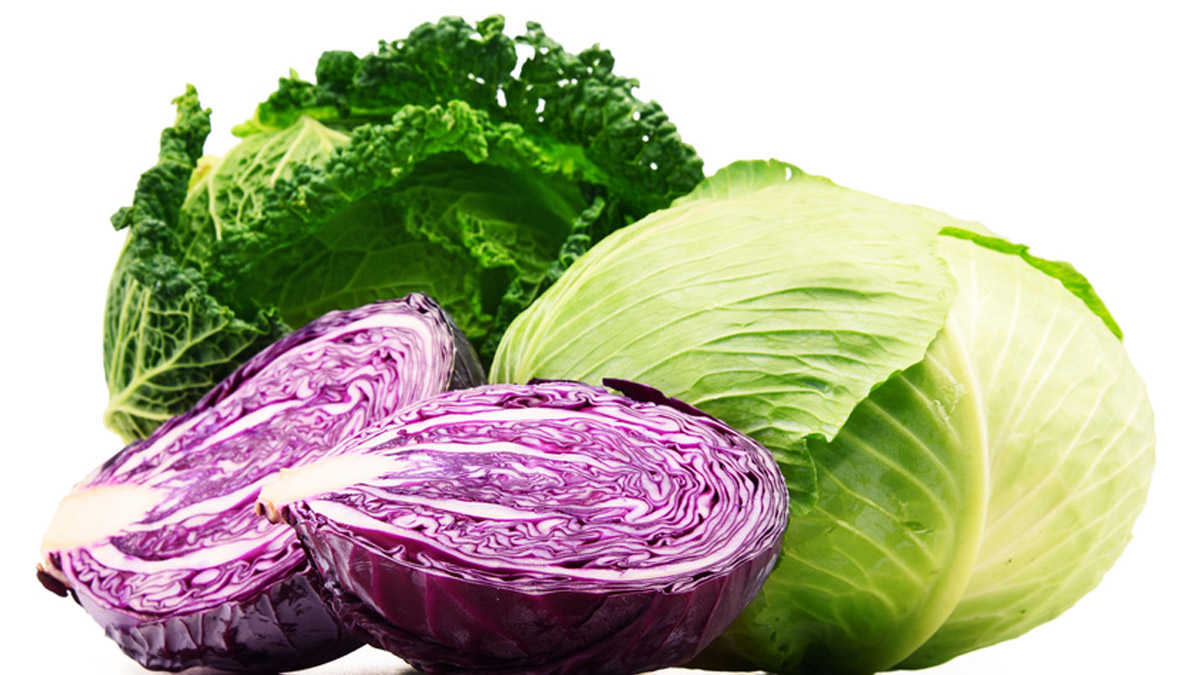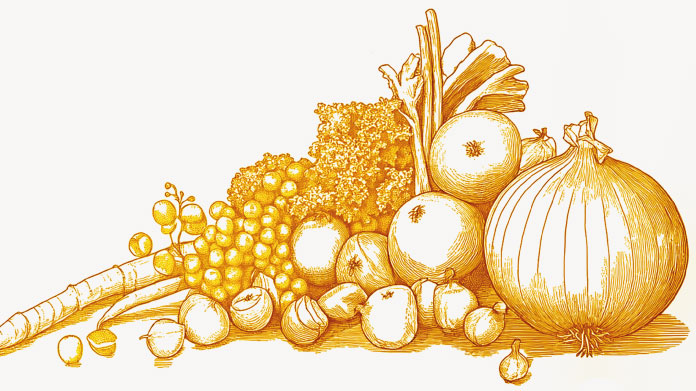Cabbages, natural remedies for winter
Often disliked for their distinctive taste, cabbages are nonetheless an excellent choice for the winter months. They boast an exceptional nutritional composition and offer beneficial properties for protecting the body.

The medicinal virtues of cabbages
Did you know that the cabbage (Brassica oleracea) is a vegetable with one of the longest histories of consumption in the world? Though its first use dates back to prehistoric times, it became popular in the age of Antiquity, and traditional medicine texts show it was used for both culinary and medicinal purposes. Hippocrates, the greatest figure in ancient medicine, described the cabbage as a ‘vegetable with a thousand virtues’. The philosopher Pythagoras also enthused about its natural virtues, while Cato the Elder, a powerful politician in ancient Rome, described it as the universal remedy for all illnesses.
Cabbages’ rich nutritional value
The therapeutic benefits of cabbages are due to their high nutrient content. Cauliflower, headed cabbage, red cabbage, Brussels sprouts, Chinese cabbage, broccoli, Romanesco cabbage, kale … all varieties of cabbage provide multiple nutrients that benefit our health. In particular, they contain vitamin C and certain B group vitamins such as vitamin B9 which plays a key role in the metabolism of amino acids and the production of DNA. Some varieties also contain copper, selenium and potassium, minerals that participate in a number of physiological functions.
Source of health-protective antioxidants
Apart from being nutritionally rich, cabbages are also recognized for their antioxidant content. Several varieties contain potent natural antioxidants which are able to combat the harmful effects of oxidative stress, a process involved in premature aging and the development of certain diseases. This is why supplementation with natural antioxidants is often recommended to prevent age-related health problems. The antioxidants found in cabbage include several that are now available as nutritional supplements, such as sulforaphane glucosinolate and quercetin.
Supports the body’s natural defenses
The antioxidants in varieties of cabbage also offer beneficial effects for the body’s defense system. The sulforaphane glucosinolate in broccoli, for example, has anti-bacterial properties, while quercetin, notably present in kale, has an anti-inflammatory effect. The vitamin C in many cabbage varieties plays a key role in protecting the body by helping the immune system to function properly.
Detoxifying properties for cleansing the body
We should also mention the detoxifying and cleansing properties of cabbages. These cruciferous vegetables are indeed often recommended for detoxifying the liver and cleansing the body. As part of a detox program, the benefits of these crucifers can be obtained from the supplement blend Cruciferous Detox Formula. The detoxifying properties of cabbages, coupled with their low calorie, high-fibre content, makes them a valuable aid in any slimming diet.
Keywords
2 Days
great products and prices
great products and prices
Marie
7 Days
Easy to navigate site
Easy to navigate site, had what I was searching for, good price. easy order-check out
James Tucker
14 Days
My skin is clearing up nicely!
Pretty good for my skin so far.
Christian
16 Days
The new packaging is excellent
The new packaging is excellent - finally! No more squashed boxes and torn envelopes.
GORAN
17 Days
Great Product
Great Product
Larry Garrett
21 Days
Quick shipping
Quick shipping; good price. No issues!
Mary McCarty
22 Days
Thr product is very good and is helping…
Thr product is very good and is helping me on my health. Then is always on time
LUGO Luz
25 Days
Buying was fine
Buying was fine. I had problems with the website not recognizing my login info, and had to call to get it fixed. Other than that, everything was good.
David S. Clark
25 Days
Your super maca and super ginseng are…phenomenal
Your super maca and super ginseng are phenomenal supplements that compliment each other when taking them together. Fantastic feeling of well-being and lots of mid day energy without the crash.
Keith Mason
28 Days
I have had amazing results with every…
I have had amazing results with every supplement I've purchased. I am extremely satisfied with this company
kirstin Torres
28 Days
Fine products
Fine products . They are on the leading edge of online supplements. The only issue -so far-is they sometime run out of subscription items.
Jason Argos
31 Days
The ordering process is very user…
The ordering process is very user friendly and the products always come in a timely manner.
CARTER Rhonda
32 Days
The price for Dr
The price for Dr. Pero's AC-11 is reasonable and in line with his views. (my former colleague). Keep it pure.
CAMPBELL Clayton
35 Days
Right on every time.
Right on every time.
Arthur Nicholas
37 Days
They are cheaper than everyone else and…
They are cheaper than everyone else and the shipping was fast. Great company.
Patricia Adams




